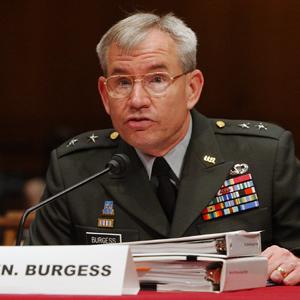DIA Chief Says Iran Remains Undecided on Building Nuclear Weapons
January 13, 2010
Featured Image
We are happy to serve you a daily summary of the day's top nuclear policy stories each morning, with excerpts from the stories in bullet form.
Stories we're following today:
US Defense Spy Chief: Iran Undecided on Nuclear Bomb - Voice of America [link]
- In an exclusive VOA interview, the Pentagon's top intelligence official says there is no evidence that Iran has made a final decision to build nuclear weapons. But the chief of the Defense Intelligence Agency (DIA) adds that much about Iran's inner workings remains murky.
- Lieutenant General Ronald Burgess says the key finding that Iran has not yet committed itself to nuclear weapons, contained in a controversial 2007 National Intelligence Estimate (NIE), is still valid.
- "The bottom line assessments of the NIE still hold true," he said. "We have not seen indication that the government has made the decision to move ahead with the program. But the fact still remains that we don't know what we don't know."
US National Security Policy and Nuclear Weapons: Perspectives on the Nuclear Posture Review - Plutonium Page in Daily Kos [link]
- I wanted to go beyond the headlines and get a deeper understanding of the NPR issues under consideration, and what any sources of conflict might be.
- As a starting point, I followed up my August 2009 discussion with the president of the Ploughshares Fund, Joe Cirincione. I asked him if he thought the media characterization of a "debate" between the White House and the Pentagon was accurate: "I wouldn't say it's between the White House and the Pentagon. I would say there is a struggle between the leaders in the administration and the nuclear weapons bureaucracy. ... The problem comes, really, not from Secretary Gates, it's from those people who have a vested career, financial, or political interest in keeping things exactly the way they are."
- [Cirincione] emphasized that this is a work in progress: "The debate today over core nuclear policy issues is fierce and developing. It's the next month or two that's going to make all the difference. These decisions are being made right now, in the government. ... Anyone who supports this security agenda should get involved. These issues are very much in play, and now is the time for people to let their voices be heard..."
Arms Control Leaders Convene Major Strategy Session - Josh Rogin in Foreign Policy's The Cable [link]
- With Barack Obama's pledge to rid the world of nuclear weapons faltering out of the starting gate, leaders of the arms-control community convened a major meeting Tuesday to gear up for their biggest fights in years. The next few months will be critical, insiders say, with a number of key international treaties up for renewal and battle lines being drawn in Washington and abroad.
- About 50 senior think tank and advocacy executives packed the K Street conference room of the Ploughshares Fund to strategize and rally the troops for the upcoming policy war. "This is going to be the fight of our lives," Ploughshares President Joe Cirincione told The Cable shortly after the meeting concluded.
Russian Nuclear Forces 2010 - Hans Kristensen in the FAS Strategic Security Blog [link]
- The latest overview of Russia’s nuclear forces produced by Robert Norris from NRDC and myself is now available on the website of the Bulletin of the Atomic Scientists.
- We estimate that Russia currently (January 2010) deploys approximately 4,600 nuclear weapons, down from roughly 4,800 a year ago. The arsenal includes some 2,600 strategic warheads and about 2,000 warheads for nonstrategic forces. Another 7,300 weapons are thought to be in reserve or awaiting dismantlement for a total inventory of approximately 12,000 nuclear warheads. We estimate the weapons are stored at 48 permanent storage sites.
A View from the Dark Side
War with Iran Nears - Washington Times Editorial [link]
- The Obama administration's diplomatic outreach effort is dead, too. The mullahs met President Obama's outstretched hand with an extended middle finger.
- Preparation for possible conflict is ongoing. This week, a biological-warfare-preparedness exercise is being held in Tel Aviv and other cities. Starting late next month, gas masks will begin to be distributed to every Israeli citizen; similar measures were undertaken before the first and second Gulf wars.
- On Sunday, Gen. David H. Petraeus, head of U.S. Central Command (CENTCOM), said in a clear signal to Tehran that it would be "irresponsible if CENTCOM were not to have been thinking about the various 'what ifs' and to make plans for a whole variety of different contingencies" with respect to Iran. The next day, it was reported that America was doubling the value of emergency military equipment stockpiled in Israel, which would be available for Israeli use in the event of an emergency. Perhaps this is a signal to Iran as well.
- U.S. policymakers are mealy-mouthed about the possibility of conflict with Iran. ...But soon, the choice will be made by others, and the real question is what role the United States will play when war comes.



